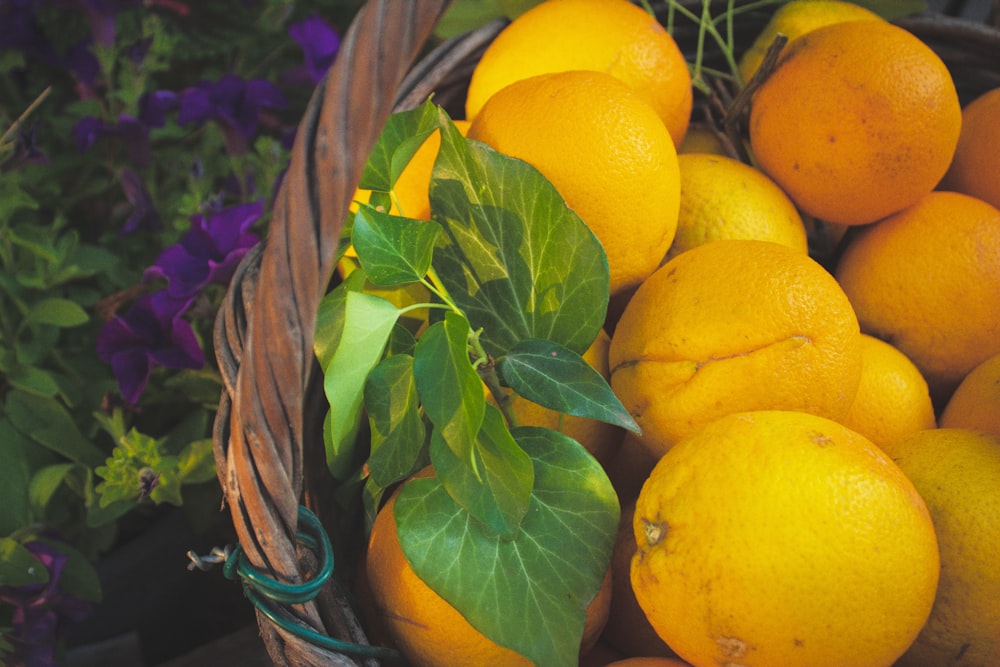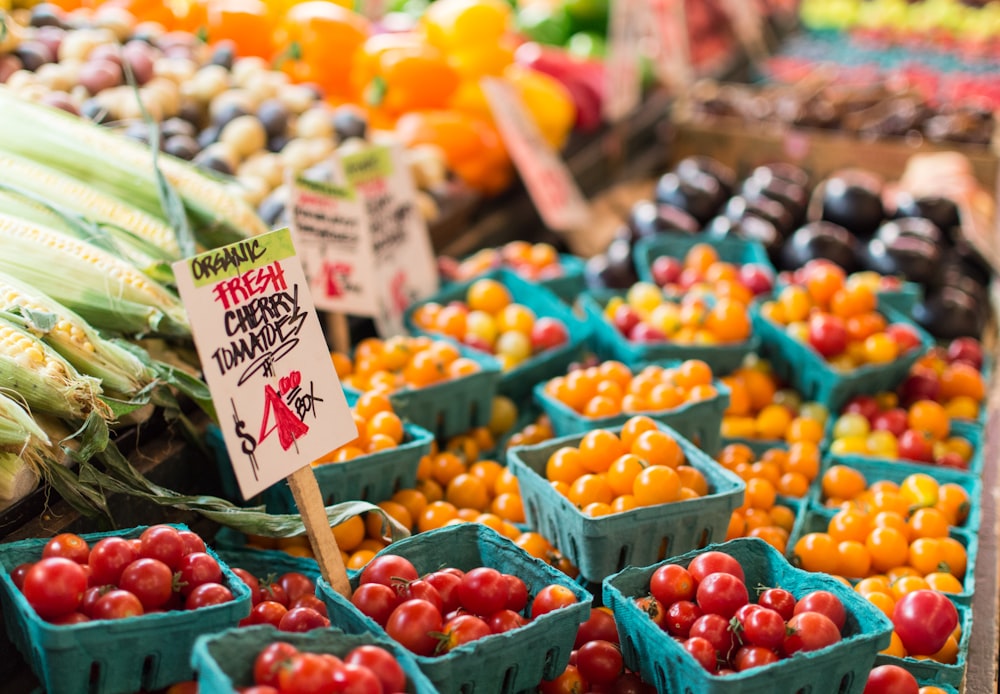
If you want to do your bit and be more eco-friendly but don’t know where to start, it can be a little daunting. I have always hated waste but I didn’t fully know the facts so as much as I wanted to do good things, I didn’t really know how. This is pretty much the reason I have created this guide to living more eco-friendly, for those who want to start.
A Guide To Living More Eco Friendly
Even things that seem small and meaningless can make all the difference, and most will barely take much effort or time out of your usual routine. Some may even save you money and improve your health.
Grow Your Own Food

Produce we buy every day have often travelled a long distance to get where they end up. By growing your own, you are reducing the fossil fuels that aid this transportation and can also avoid any nasties such as pesticides and chemicals
Not everybody is able to grow their own produce for various reasons, but you can still start living more eco friendly by buying locally sourced ingredients with no plastic (more about that in a mo)
Reduce Meat & Dairy Intake

The Amazon is slowly being cut down to allow more room for cattle. Nearly 15% of greenhouse gas emissions are from animal agriculture which is more than all methods of transport. The Guardian states that eating less meat and dairy is the best thing you can do for living more eco friendly – read their article here.
Not only can you find some delicious new vegetarian and vegan recipes, but lose weight too and be a healthier version of yourself. According to a recent study, those who decide to eat meat create twice the amount of greenhouse emissions in comparison to those who eat solely plant based foods.
Buy Plastic Free Beauty Items

Plastic pollution is obviously one of the highest concerns for our environment right now. As plastic does not decompose, it ends up in landfill and can take hundreds of years to break down. Over 1 million of marine animals are killed every year due to plastic debris in the ocean, which isn’t hard to believe when everything around us in made out of plastic.
One way to cut down on plastic substantially is to buy ‘naked’ products, like the ones you see in cosmetic retailer, Lush. So many of their products are vegan, handmade and are available to buy with no packaging at all. (If you want to see reviews of their stuff, click here, I’ve done plenty!)
There are many great stores that sell these types of products all over the UK. Some examples are… The Plastic Free Shop, Sea No Waste, Ripple, Planet Organic, Naked Larder and Earth, Food, Love.
Shop Second Hand

Last Autumn I did a whole post on Second Hand September (Oxfam) which you can read here. Oxfam state that the carbon footprint of new clothes bought in the UK every month are more than flying a plane around the world 900 times, which is such an alarming statistic!
By purchasing pre-loved clothing in charity shops you are not only helping those in need but also lowering the demand for clothing production. You’re doing living more eco friendly by recycling clothes that may have ended up in landfill whilst most likely grabbing a bargain too! Win-win situation right there.
Compost Old Food

Composting for a year at home is said to reduce the same amount of gases that are given off your kettle during the whole year. It’s cheap and easy to do, saves unnecessary waste going to landfill and your plants will love it too!
Bring Your Own Bags & Containers

On average, if one person uses reusable bags throughout their lifetime it would save over 22,000 plastic bags. For ONE person. Crazy times!
I make my own tote bags with funky sayings on them, isn’t that so much better than carrying a plastic Sainsburys bag anyway? You can help the environment and look b o u g i e all in one go.
Use Reusable Straws & Cups

Many stores and coffee shops are now giving incentives to customers bringing their own cups, such as a discount or additional points on your loyalty card. My current favourite are the Chilly’s bottles – they can keep your drink hot for up to twelve hours (I’ve got this pretty pastel colour)
As for straws, it is estimated that over 4.4 billion plastic straws are thrown away in the UK each year. It’s easy for this to be avoided – more and more brands are releasing straws made out of other materials so that they can be reused. My boyfriend bought me some metal straws in Paperchase that are so cute, they even come with a tiny brush to clean them! They look and feel much nicer than plastic too in my opinion.
Bake More, Bulk Up

Since I became more aware of my allergies, I’ve had to bake a lot more of my own things at home. Eating food that I have prepared actually satisfies me more than I thought – you are fully aware of all the ingredients included and I find that it works out a lot cheaper.
By doing this you are also reducing your kitchen’s carbon footprint as you’re not adding to the production and transportation of these items. Often you can make shop bought products yourself on a stricter budget and more environmentally friendly way. (we all know homemade meals are better anyway)
Use Food Sharing Apps

This is one of the newer ones I have come across but I LOVE it. The main app I use for this is free and it’s called OLIO (this is not sponsored I honestly do just love it)
You can use OLIO to collect unwanted goods or list your own things for people in your neighbourhood to collect. I have done both in the past but you can do either as many times as you like. Food and non-food items can be listed on there, so it’s great if you’re looking to declutter your house or wanting to pick up a freebie that would be more helpful to you than its current owner.
Sandwich chain Pret also list all of their waste food on there at the end of the day, so if you could make use of it then you may as well sign up and see what you can get your hands on. (I swear I’m not an affiliate)
Buy Loose (and local) Produce

I know I have touched on this briefly already but there’s always room for more detail…
The first point to touch on this is that they’re loose, of course. So much fruit and veg in the supermarkets are covered in plastic so this is a great way to put it straight in to a reusable bag with no plastic involved.
Another merit to buying your fruit and veg from markets is the freshness! There are obviously a lot more stages of production that they have to go through before they are available in supermarkets; production, packaging, transportation, storage etc. With farm shops and the like they cut out so many of these steps, and therefore reducing fossil fuels.
Many of the “organic” sections in the supermarkets have over inflated prices that have still gone through this process, but have lower pesticides, which is the main reason shoppers opt with organic items. Buying from markets and stalls are still organic but provide much better value – not only with the money you’re spending but nutritionally too.
Make Your Own Products

Another way to reduce the amount of plastic in your home. There are so many different cleaners for all the appliances we have in our homes, and they can be expensive, strong smelling and harmful to ourselves and the environment.
Creating your own products is quick, easy and fun – you know exactly what’s in them so you can avoid the overpowering chemicals that linger for hours and reduce the amount of plastic ending up damaging the environment.
Repair & Upcycle

One of the points I mentioned earlier was about shopping second hand to avoid buying new clothes, and this is a similar point. Purchasing new clothes increases the microfibres (and therefore plastic) in the ocean and takes so many years to decompose. The majority of manufacturers do not produce clothing in the most sustainable method possible as there is not a big enough demand for it, and their current methods are likely more efficient and cost effective.
By repairing your old clothes you can avoid spending more unnecessary money and sew it up for free! Often it’s only a small hole and therefore won’t take very long. This generates less waste overall and saves more material going to landfill. (and textile dying polluting clean water)
Wrap Gifts In Alternative Ways

I posted An Eco Friendly Guide To Wrapping on my blog a few months ago which pretty much sums this point up. Over 227,000 miles of wrapping paper are thrown away each Christmas time – the plastic, embellishments and sellotape prevents it from getting recycled. To make gift giving more sustainable this year, see my blog post above for some inspiration. These ideas can make the gift look much more appealing to the recipient than standard wrapping paper anyway and you know you’re doing your bit.
Do Your Research

It’s so important to educate ourselves on how we can start living more eco-friendly and create less waste. I have always hated waste but sometimes it’s things that you wouldn’t even think about that add up and make all the difference. I looked up some facts myself from Ovo Energy – here are some of their shocking statistics…
- We bin around 50m tonnes of electrical waste globally every year.
- We throw away 7.2 million tonnes of food every year, and more than half of it’s perfectly edible. Meanwhile, 1 in 7 people across the world don’t have enough to eat.
- Between 20% and 40% of fruit and vegetables are rejected by supermarkets before they even hit the shelves because they don’t adhere to their cosmetic standards.
- We used to get through 500 million plastic bags every week in the UK – amounting to billions of bags and thousands of tonnes of plastic. Sadly, each bag will take between 500 and 1,000 years to decompose in landfill. However, since the introduction of the 5p bag, usage has dropped by 85%
- At Christmas, as much as 83 square kilometres of wrapping paper will end up in UK bins when it could have been recycled instead.
- The most effective way for individuals to cut emissions, according to new research from Sweden and Canada, is possibly the most controversial: having fewer kids. Studies revealed anyone who decides to have one less child, in a developed country, will spare the planet another 58.6 tonnes worth of CO2!
- The number of disposable nappies each baby gets through weighs the same as a family car!
- Humans now buy a million plastic bottles a minute. Most of this plastic ends up in the ocean. By 2050, the ocean will contain more plastic by weight than fish.
- A single leaky tap in your house can waste as much as 5,000 litres of water a year. If we all fixed our dripping taps we could supply 120,000 people with a day’s worth of water.
Go Paperless When Possible

Paperless receipts, billing and bank statements all seem to be becoming more mainstream now which is great of course, but with some things you do have to ‘opt in’ to. If you’re not very organised like me then you’ll find it’s much easier to have everything in one place (especially receipts for returning things) and you’re much less likely to not know where they are.
By doing little things like this you are helping cut down pollution and deforestation by reducing your carbon footprint.
One of the first conditions of happiness is that the link between man and nature shall not be broken
Leo Tolstoy
That concludes this guide of eco friendly living. Nobody is perfect – in this day and age it can be a real struggle to live completely eco friendly… you can’t walk/cycle everywhere and the products you need to use sometimes do contain some ingredients you’re a little unaware of but every little helps – if we all start doing little things where we can, it can make all the difference.
If you liked this post, don’t forget to sign up to my email list to be notified in future and thank you for reading!

Lifestyle Blogger based in Devon.
I like to write, drink tea and read great books.
PR – admin@diagonalstripes.co.uk




